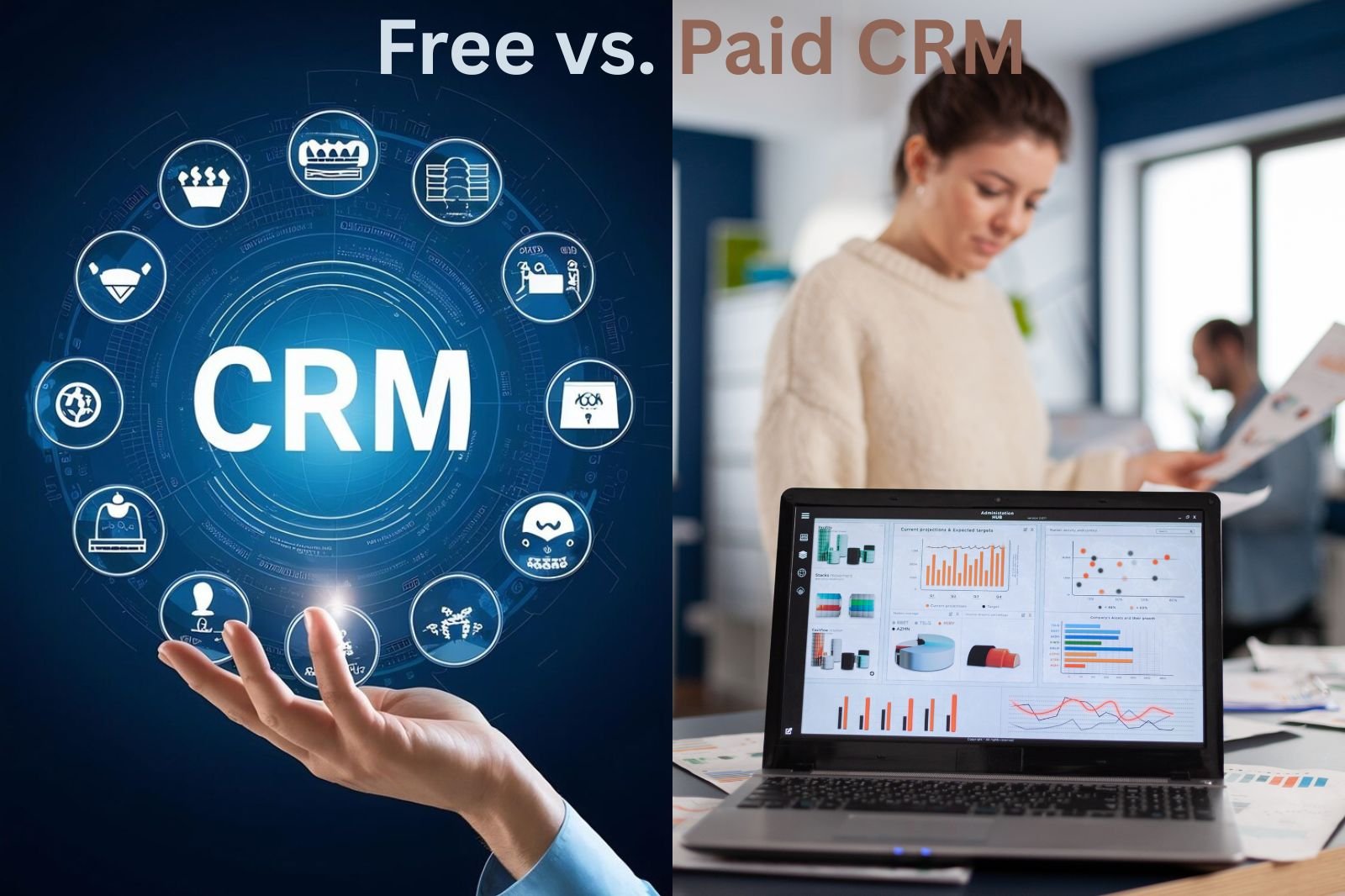Choosing the right CRM can help any business to grow. Whether your company is established trying to streamline operations or a startup trying to manage client contacts, choosing between a free and premium CRM is very vital. Many businesses struggle with lead tracking, client engagement, and properly handling their growing customer base. Without the necessary infrastructure, follow-ups get delayed, data becomes scattered, and company development slows down. Investing in a CRM assures flawless operations; the question is whether you should choose a free or a paid solution.
The challenges of running a business without a CRM
Companies usually run across big challenges when they rely on spreadsheets, emails, and disconnected technologies to manage client relationships. Manual tracking devoid of a centralized method might become disorganizing. Different follow-up with prospective clients causes lost money and missed opportunities. Errors and delays resulting from manually handling invoices, contracts, and financial records are avoidable. Companies that deal with a lot of customer encounters also struggle to provide customized experiences free from a regulated system.
For startups specifically, these challenges might be more critical. Limited resources and a lack of dedicated sales staff make it difficult to maintain set procedures. Small companies run the risk of losing valuable leads without a defined system for keeping an eye on client interactions. A perfect CRM provides real-time insights to enable businesses to grow free from these inefficiencies, automates required activities, and stores all customer data in one place.
Difference Between Free and Paid CRM Solutions
Both free and paid CRMs have advantages; the best choice will rely on the specific needs of a firm. Free CRM for startups and small businesses is an excellent option in attempting to manage customer data without additional costs because of its basic features. Usually including simple features like email integration, task tracking, and contact management, these solutions additionally Free solutions might also have limitations in terms of storage, fewer automation tools, and less customer care.
Paid CRMs, on the other hand, provide a full solution with extensive automation, reporting, and customizable options. Businesses with sophisticated needs for sales forecasting, workflow automation, and perfect third-party integrations occasionally find that a subscription CRM is well worth the price. A premium solution ensures scalability, which helps companies to expand without later system migration.
How can a strong CRM handle business issues?
The best CRM design helps businesses to reduce procedures and improve client relationships. Good lead management makes sure businesses may compile, track, and grow leads without neglecting follow-up. Clients may examine their files, invoices, and communication history using a dedicated customer site, therefore promoting open connections. Features of task and project management allow teams to automatically finish procedures, thereby ensuring deadlines are fulfilled without human involvement. Automated emails and digital signatures assist in simplifying contract management, hence reducing documentation and increasing productivity.
For startups, their choice of CRM for startups mostly relies on cost. Many free alternatives lack scalability, hence businesses have to relocate systems as they grow. A flexible CRM should allow businesses a reasonably priced access point and the freedom to upgrade to advanced capability as their needs evolve. Choosing a system with contract administration, invoicing, and safe file storage can help you greatly increase productivity and customer satisfaction.
Modern CRM Technology Innovations
CRM is evolving since new concepts simplify industry-specific solutions' implementation for businesses. Usually, customizing classic CRMs to meet the specific needs of different industries calls for more work. A new approach to CRM design is under development: theme-based solutions targeted for specific industry sectors. Designed for real estate, logistics, insurance, and other industries, this model provides pre-built designs and running guidelines. Companies benefit from a ready-to-use system with features catered to their industry rather than from costly bespoke development.
This approach assures that businesses acquire the precise instruments they want and simplifies the acceptance process. Companies could choose a CRM for business specifically designed for their industry instead of depending on general systems needing extensive setup. This innovation notably helps startups and small businesses as it makes using traditional CRM easier.
Why Choosing the Right CRM Matters for Startups and Small Businesses
Small businesses and startups operate on limited resources and constrained budgets, hence it is imperative to choose an online CRM that finds a balance between cost and functionality. Many businesses are reluctant to pay in premium solutions due to financial constraints; nonetheless, free options might lack necessary instruments for long-term success. A well-organized CRM with a free plan for single users is an excellent starting point. It allows smaller businesses to study platform capabilities without committing themselves to membership.
Having access to required skills free from upfront costs ensures that businesses focus on customer relationships and growth instead of other aspects. Switching to a premium plan offers advanced tools that let businesses scale successfully as activity increases. From bill collecting to contract processing to process automation, a flexible CRM system meets a company at all levels of growth.
Conclusion
Selecting a crm for business is an important choice influencing efficiency, client relationships, and long-term growth. Free solutions provide basic functionality at no cost for businesses with minimal demands. Still, companies looking for industry-specific solutions, scalability, and automation find benefits from paid CRM expenditures. FynPro should allow one to start with free features and upgrade as business needs change.
A well-run CRM may affect business operations, thereby improving client connections and increasing general effectiveness by changing running practices. Businesses that invest in a solution tailored to their industry have a competitive advantage as they maximize production and streamline processes. Whether one decides on a free or premium CRM, the crucial issue is to choose a system that increases customer interaction, simplifies procedures, and suits business goals.

